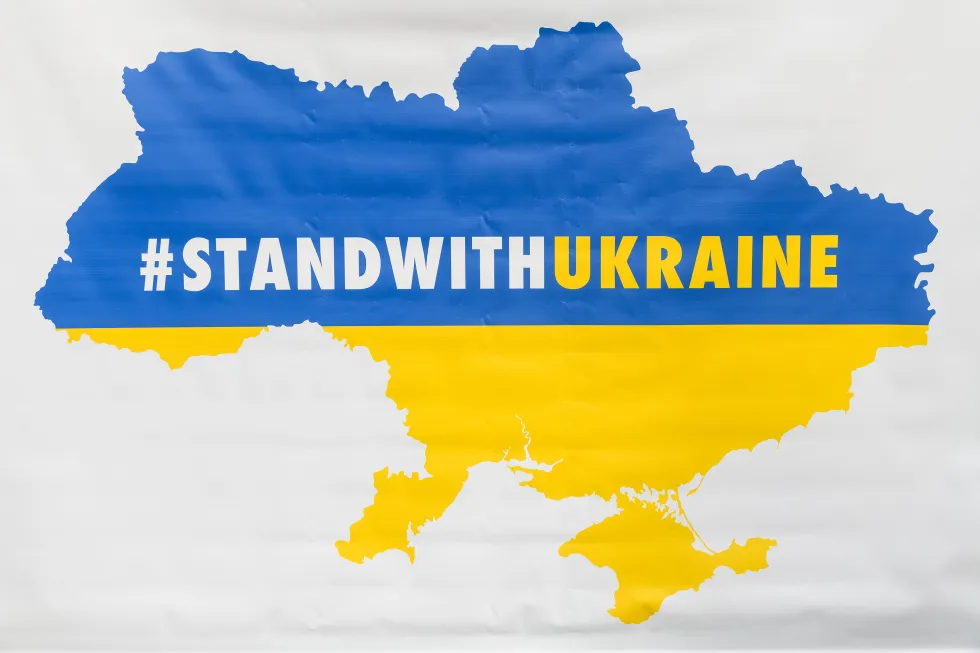Ukraine has a strong educational base that allows it to grow its tech industry by 26% annually. Each year, about 30,000 students graduate from technical universities in Ukraine. As of 2020, there were about 200,000 tech specialists working in the country including software developers, project managers, business analysts, quality assurance specialists, and other experts. Prior to the recent conflict, it was estimated that the Ukrainian market would increase to more than 250,000 tech workers by 2025.
WhatsApp, Grammarly, Gitlab and Solana were all founded or co-founded by Ukrainians, and Google, Samsung and Amazon all have research and development centres in the country. The country also has a robust freelance network with companies such as Upwork, Fiverr, Airbnb and others contracting Ukraine tech talent.
A 2018 survey by the International Labour Organisation, a United Nations agency, estimated that up to 3% of the country’s workforce or as many as 500,000 Ukrainians were registered on web platforms. An Oxford report found that the country is the world’s seventh-largest supplier of online labour.
The Covid-19 pandemic may have pushed those numbers even higher.
Tech hubs are located in many Ukrainian cities we are now reading about in the headlines including Kyiv, Odessa, Dnipro, Lviv, Kharkiv, Mariupol and Chernihiv.
Since the Ukrainian war crisis began just weeks ago, offers of employment have started to flow in from tech companies around the world to the country’s citizens. Dozens of companies have posted over 500 job ads for tech roles on job sites such as Remote Ukraine, spun up to help tech firms around the world hire Ukrainians. While most of the companies posting are from Europe, companies in the U.S. and Canada are also participating. Roles are typically remote in nature allowing a person to work from anywhere, ranging from a Web3 developer to a senior 3D artist.
At JobBliss this crisis is intensely personal. Our partner dev team Binary Studio is located in Ukraine. Our friends/team members and their families’ welfare is constantly top of mind. Like others watching this crisis unfold from afar, we are shocked and want to do something. Eager to do our part to help, we reached out to our dev team to ask their advice.
Is there some way we can help Ukrainian technology workers affected by war find temporary or permanent jobs, maintain an income flow, or even relocate to another part of the world? (We should add most of our tech friends don’t want to leave, they just want to go home and to live in peace).
Here are some other resources we’ve compiled (we’ll continue to build this list out – feel free to message us on https://twitter.com/gojobbliss with verified links we can add.
For prospective employers
Work.ua is Ukraine’s largest job board https://www.work.ua/en/
Dou – a popular source of Ukrainian IT and tech jobs https://jobs.dou.ua/
Remote Ukraine – Remote Ukraine is a charity helping refugees find jobs remoteukraine.org
JobBliss – Freelancer and Contractor marketplace https://jobbliss.com
For current employers
To help get your people paid this is National Bank of Ukraine accounts https://bank.gov.ua/en/news/all/natsionalniy-bank-vidkriv-spetsrahunok-dlya-zboru-koshtiv-na-potrebi-armiyi
Some guidance for supporting Ukrainian employees
https://www.internationalsos.com/insights/supporting-your-employees-in-ukraine
For those wanting to offer housing, medical, humanitarian and other support for Ukrainian refugees
Ukraine Take Shelter is offering housing assistance for Ukrainian refugees. Find it here
People in Need is providing humanitarian aid to over 200,000 people on the ground. For those most in need, they provide food packages, emergency shelter, safe access to drinking water, hygiene items, and coal for heating. Donate here.
The Ukrainian Red Cross does loads of humanitarian work, from aiding refugees to training doctors. Donate here.
The International Medical Corps is on the front lines and prepared to help citizens with emergency health care services, as well as mental health and psychosocial support. The agency is also keeping the pandemic top of mind throughout the crisis by prioritising COVID-19 awareness and prevention services, to help keep displaced citizens safe from the pandemic. Donate here.
CARE is responding to the crisis by providing Ukrainians in need with food, hygiene kits, psychosocial support services, access to water, and access to cash. Donate here.
Nova Ukraine is a nonprofit that delivers aid packages to Ukraine with everything from baby food and hygiene products, to clothes and household supplies. Donate here.
UNICEF is repairing schools damaged by the bombings and providing emergency response to children affected by the conflict. Donate here.
UNHCR, the UN Refugee Agency has stepped up its operations and is working with governments in neighbouring countries “calling on them to keep borders open to those seeking safety and protection.” You can help support the UNHCR’s work supporting refugees by donating here, and take action here to send a tweet urging governments and businesses to support the United Nations’ urgent appeal for $1.7 billion to deliver life-saving humanitarian support.
OutRight Action International is helping to support LGBTQ+ groups and organisations on the ground, setting up shelters and providing safety for citizens. All donations made to OutRight will go directly to the cause. You can donate here.
The United Nations World Food Programme (WFP) is deploying emergency operations in Ukraine and surrounding countries to provide food assistance to those fleeing the conflict. Donate here.
Save the Children is working with partners to respond to meet the urgent needs of affected children and their families. It’s ready to provide life-saving assistance, such as food, water, cash transfers, and safe places for children as people flee amid freezing temperatures and brutal conditions, and to scale up operations to ensure children impacted by the crisis have the support they need. Find out more and donate here.
SOS Children’s Villages has worked in Ukraine since 2003 and is coordinating an emergency response to support families who are living in the conflict areas and those who have been internally displaced. Find out more and donate here.
Mercy Corps is mobilising a team to the region to assess where help is most needed, and is anticipating providing emergency cash assistance, as well as supporting local organisations that know their community needs best. Between 2015 and 2017, Mercy Corps provided humanitarian assistance in eastern Ukraine, reaching more than 200,000 people with emergency cash, food, water, and sanitation supplies, small business development grants, restoring war-damaged homes and more. Find out more and donate here.
Medical Teams International is fundraising to send medical supplies to the region, with all proceeds going towards sending medicines and/or medical supplies. Learn more and donate here.
The World Health Organisation Foundation is raising funds for WHO’s Health Emergency Appeal for Ukraine. An estimated $57.5 million must be raised to deliver urgent physical and mental health care to the 18 million people in Ukraine needing urgent humanitarian assistance, and more than 4 million refugees who’ll need protection and assistance in the coming months. You can donate here, and share the WHO Foundation’s call for donations on your own social media, including Instagram, Twitter, and Facebook.
Alight is a humanitarian nonprofit that has sent teams of emergency response workers to Poland to assist with the burgeoning refugee population by helping to meet all of their material and psychosocial needs. You can donate here.
The International Rescue Committee (IRC) is on the front lines of the world’s conflicts, natural disasters, and other crises, helping people recover from extreme hardship and put their lives back together. The IRC currently has a team dispatched to Poland that’s helping to provide food, medical care, and emergency support services to families who fled Ukraine amid the violence. You can donate here.
Team Rubicon mobilises its highly skilled volunteers to help people prepare, respond, and recover from disasters and humanitarian crises. As a World Health Organisation Emergency Medical Team mobile unit, Team Rubicon has sent a small team to Poland, including physicians with expertise in paediatrics and maternal and reproductive health care. Donate here to help Team Rubicon rapidly respond to meet humanitarian needs.
Direct Relief is working directly with Ukraine’s Ministry of Health and other on-the-ground partners to provide urgently needed medical aid, including emergency response packs intended for first responders, oxygen concentrators, critical care medicines, and much more. Donate here.
For those wanting to monitor news on the ground in the country
https://www.pravda.com.ua/eng/
And https://how-you-can-support-ukraine.super.site/
We’re all hoping that there is a quick and peaceful end to this terrible conflict.
🇺🇦 Ukraine Strong!
❤️ Angie and the JobBliss team




